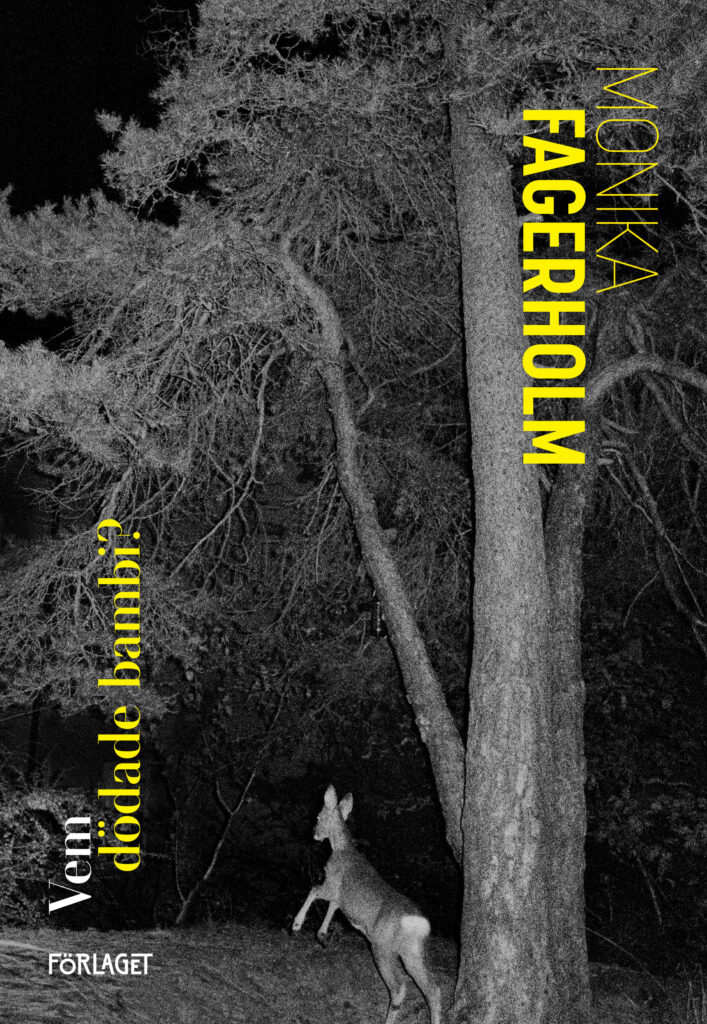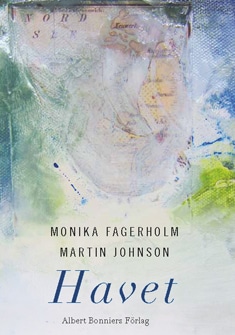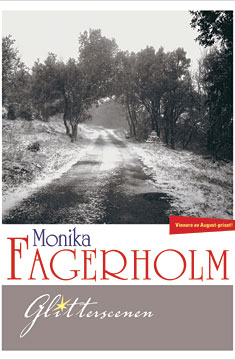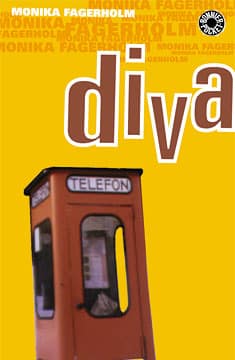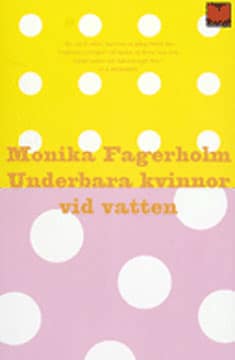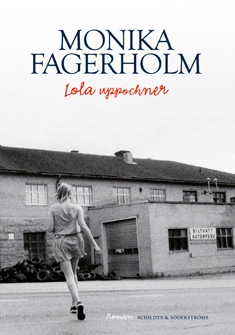
Lola uppochner Lola Upsidedown
Lola Upsidedown is a haunting tale of unusual people in a constrained context. Rarely has a small town’s languorous dynamic, darkness and humor been rendered as authentically as here.
1994. A young man is found lifeless, killed and abandoned in the small town of Flatnäs. His name is Flemming and it becomes the job of local twin cops Little and Big Berglund to investigate the crime. When Flemming’s murder is followed by yet another brutal killing, the panic is a fact. Flatnäs used to be a town where nothing ever happened, and the local residents tremble at this sinister change. Among them are wheelchair-bound Anita in The Mill, her sister Ca Bäck who is having an affair with a much-older government bigwig, and of course, Jana Marton.
Jana Marton returns to her childhood town in the autumn of 2011, invited to a dinner party to “celebrate the arrival of autumn.” Attending the party are some unexpected guests – figures she’d thought long gone. Jana is confronted with her memories from the day that she found Flemming Petterson’s corpse in a sand pit on her way to her summer job at the supermarket. Suddenly, she sees it all in a new light.
Monika Fagerholm’s Lola Upsidedown is a thriller written according to the unique Fagerholmian dramaturgy. The events unravel in an associative yet strictly logical way, the characters move alongside and past each other, meet, and say: “I want to be someone who the wind blows through.”
Awards
| The Society of Swedish Literature in Finland’s Award (The Granberg-Sumeliuska Prize) Finland | 2013 |
Reviews
-
“A story that contains this many wonderful ingredients, that has such a fantastically radiant wealth of details and linguistic luster, can't be anything other than a reading experience… A vertiginous novel.”
-
“[The tropes of] the girl and the small town are Monika Fagerholm's two main claims in contemporary literature. And in a very distinct way. Along with the choppy, repetitive, seemingly innocently casual, but always mimetic, imitating and quoting prose she has given us a number of inimitable novels… The handful of death she always supplies has added a nearly relentless allure… rendered with almost musical precision”
-
“An outright crime novel pastiche, although with genuine darkness and poetic ambition… As a renderer of small town class divisions Monika Fagerholm is as always superb.”
-
“When it comes to language, [Lola Upsidedown] has something new, something bold, something liberated and even poetic. /…/ It's not hard to become a part of the text, to become entranced, horrified, delighted, astonished by the characters. By mankind.”
-
“On the surface Monika Fagerholm has written a thriller, a real classic: a number of people return to the scene of the crime seventeen years later, and old secrets are excavated from a mess of loose ends, traumatic memories, sorrow and anguish. The writing is short of breath and choppy like a teenage girl running away from something in the woods.”
-
“Monika Fagerholm doesn't tell stories; she evokes worlds. Although a lot happens and her novels are teeming with characters, language is the main thing. That and the author's magic hand that transforms and gives life to the elements she touches.”
-
“The cast of characters is, as appropriate in a true Monika Fagerholm novel, rich and tantalizing, unmistakable and utterly unforgettable. /…/ Lola Upsidedown is a thriller that plays with the genre's clichés… There is a fateful and David Lycnhian obscurity and self-evidence to the story, which makes it a pleasurable and captivating reading experience.”
-
“Lola Upsidedown is a magnificent novel. /…/ Her latest work takes the reader to the definite Fagerholmian (mental) scenery, in which the events and the language of the narrative are inseparable.”
-
“Fagerholm's fifth novel is a multilayered, enjoyable reading experience.”
-
“Refreshing and challenging”
-
“Monika Fagerholm has redrawn the map when it comes to Nordic literature… The imitators in Fagerholm-land are many, and they more or less openly allude to or link to the Fagerholmian idiom. Because that's what it's about: an idiom, an extraordinary way of breathing text. /…/ [Lola Upsidedown is] a magnificent story about what it is to be human.”
-
“I can’t put the book down, I just want to remain in the Fagerholmian sentences… Suddenly I’ve read 150 pages, and can’t let go. No one else can write like that. About love that makes you weep.”
-
“She has spoiled us, the good Monika Fagerholm, with one amazing story after the other… With an utterly inimitable language, which seems to liberate itself and run a little more wild for each book she writes, and with casts that could consist of transferred and humanized gods from our origin myths, she delivers texts that enthrall the reader from page one. So also in this autumn’s novel, Lola Upsidedown. /…/ Monika Fagerholm builds her novel as a mosaic, one colorful piece after the other, close together, allowing the nuances to interact or conflict. She imperceptibly twists her story – as if it were a kaleidoscope – and suddenly new patterns emerge, new contexts and new fractures. It sparkles and glistens in my brain when I read, brought on by the powerful sense of presence in the text, by all the impulses. /…/ And throughout, the characters are alive, they are for real, they make you happy and sad and frightened. Heart pounding, you can feel the taste of blood in your mouth. /…/ Thus, Lola Upsidedown is a novel that enriches its reader. And makes you happy.”
-
“Fagerholm skillfully describes how beyond the outer façade, human thoughts and actions are exposed to and influenced by many different types of memories, repressions, obsessions. /…/ Fagerholm's storytelling, the visually functioning linguistic energy, has demonic traits… There are many cleverly elaborated visual motifs in the story. Thematically you will find references such as Francois Truffaut's Jules and Jim, Charles Laughton's gothic classic The Night of the Hunter and – last but not least – the demonic worlds of Lars von Trier. The shape of the novel resembles Maurice Ravel's Bolero composition: a spiral, patterns in the human relationships that repeat themselves, become self-sustaining, in circles.”
-
“Exciting”
-
“A brilliant novel.”
-
“Dreamy”
-
“A dreamlike thriller of a scary beauty.”
-
“First and foremost its about her prose, which resembles nothing else written in Swedish. Her epigones have been numerable over the years, but few have gotten anywhere near. She crafts a syntax that is utterly unique. She allows digressions in a way that shouldn't be possible. Swivels around in the middle of a sentence, goes somewhere else. Colloquial speech is combined with poetic fragments, just as she also thematically always allows the filth and austerity to be penetrated by dreams of grand glamour. /…/ There are certainly parallels between David Lynch's and Fagerholm's fictitious small towns: the mystical atmosphere, the unpredictable mix of comedy and dark drama. /…/ As always Fagerholm is masterful, probably the only contemporary fiction writer I know that truly examines the relationship between surface and depth, between emptiness and content… A grand and delightful novel.”
-
“The cast of characters is as swarming and full of stories – some more important and indispensable than others – as readers demand of an author like Monika Fagerholm. The characters bubble up towards the reader while small shards of the puzzle that must be laid are sifted out… Monika Fagerholm manages to creep under your skin and remain there”
-
“It's as though, when a fictional life grips Fagerholm's literary consciousness, she also receives the form… And is it not that very thing – form and content as one, as inseparable, carrying one another – that is the definition of great literary art? Is that not what literature is ultimately about? When Jan Arnald reviewed Fagerholm's previous novel, The Glitter Scene, in this newspaper, he wrote that he found himself shuddering; 'that very rare kind of shudder that only arises when you touch the very essence of literature, the very purpose.' Those are grand words – essence, purpose, great art – but that is how grand this is! She creates such greatness, again and again. /…/ And then this happens: you experience pleasure. The pleasure of being invaded by the Fagerholmian language. You expand. You are infected. A foreign language begins to sound inside of me (the same risk of infection that comes with Sara Lidman's language). And there is – no matter how tragic the actual plot – only joy. Rising joy, like bubbling champagne.”
-
“Original, beautiful prose… a brilliant writer… The symbolism and the unidentifiable unease are reminiscent of the TV series Twin Peaks… A grand novel about loneliness, coming of age, creation, guilt and death.”
-
“She arrives like a hurricane and sweeps the reader along on a breathtaking journey. One must simply follow her pace and rhythm. She doesn't loosen her grip until the book ends, after 459 pages. Monika Fagerholm's new novel, Lola Upsidedown, is a reading adventure above the ordinary. She penetrates the human psyche, the soul's pain; conveys thoughts and inner monologues evocatively and with presence. /…/ One cannot be anything other than enthralled by Monika Fagerholm's storytelling, her frantic pace, her stylistic confidence and her insight into human complexity and vulnerability. One can simply congratulate her to one of this year’s great reading experiences.”
-
“Brilliant in parts… Lola Upsidedown is written with the same fervor and psychological sharpness [as her earlier novels].”
-
“The prose – every sentence and peculiar colloquial spelling – is Fagerholmianly unique. No one writes likes her, her tone, her wild use of language and her reference-laden descriptions are instantly recognizable.”
-
“For new Fagerholm fans, Lola Upsidedown is a gift. The novel revolves endlessly around the fateful event, but where a traditional crime novel would move further and further into the murder mystery and the solution of the crime, Fagerholm throws a stone into a lake and becomes more interested in the rings that hereafter arises in the water. Lola Upsidedown is therefore not a crime story (as we know them), but a sizzling, furious novel that weaves tragedy and grief into the language so that it almost becomes claustrophobic. /…/ Lola Upsidedown is a novel about belonging and not belonging, about fleeing and returning. About remaining silent for your own sake and for the sake of others, perhaps because of fear, but also because of convenience. And about not wanting to listen for the same reasons. It is nerve-wracking, hoarse, eerie, captivating. It is sometimes completely crazy when the language takes over and gives the reader a high pulse, not the murder plot itself. But that is exactly what makes Lola Upsidedown something very special and exhausting in the best way imaginable.”
-
“The most beautiful literary cacophony with a wealth of voices that constantly send the reader astray. The reader is presented with terrific dialogues with a suggestive, seductive, and ominous style, and must keep their wits about them only to finally surrender completely and utterly to this complex, gothic novel. […] A must for the picky reader!”
-
“Lola Upsidedown is one of those rare and happy instances, where a poetic soul throws itself over the crime genre. It is ultra-literary and ultra-entertaining. /… / [The novel] is rare, both as a crime story and as a literary novel. It is told in a sea of voices that repeat themselves and each other: interrupts, adds, adjusts. /…/ In these flickering fragments the reader becomes a co-creator. Instead of being directed forwards by a firmly pinned down plot, she can tune in to [the location] and see the residents clearly before her, as the comic and fallible people they are.”
-
“The novel is intoxicating with all its impressions. The reader is immersed and swept away by a maelstrom of events. Monika Fagerholm’s literary technique is out of this world! /… / The horror holds the reader in a tight grip from the very first page up until its last. (…) This is because Monika Fagerholm is incredibly adept at creating frightening, terrifying scenery and not the least characters, with strange and unsettling demeanors. /… / Lola Upsidedown is a manic magnetic field of a novel, impossible to put away.”
- Author
-
 Monika Fagerholm
Monika Fagerholm
- Published
- 2012
- Genre
-
- Literary
- Pages
- 464
- Reading material
Swedish edition
- Rights sold
-
Denmark, Turbine
Finland, Söderströms (Swedish)
Finland, Teos (Finnish)
France, Gallimard
Norway, Oktober
Sweden, Albert Bonniers
- Film rights sold
-
Finland, Långfilm
